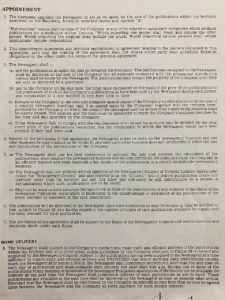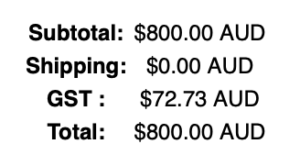It surprises me how much newsagents and others associated with newsagency businesses rely on legacy suppliers such as magazine publishers, magazine distribution businesses, lottery businesses, stationery suppliers, newspaper publishers and card companies for the future direction of the channel.
These supplier representatives are clueless about the future possibilities for the newsagency channel. I appreciate that sounds offensive,. That is not my intent.
They have no choice but to serve their needs and the needs of those who pay them, ahead of all others, ahead of the needs of newsagents.
When they are asked for ideas, advice or suggestions about the future for and of newsagents, they can only answer in the context of their needs, the needs of the businesses they work for, and what they know.
While they are nice people in these businesses, they do not usually have skin in the game, their own money, or the skill set to suggest a pathway to a brighter future for retail newsagents.
Most supplier representatives are not business owners, their investment is not the same as the investment of the owner of a newsagency. For them, what is at stake is likely not the same as what is at stake for newsagents.
Most supplier representatives are not retailers.
Most supplier representatives are not consumer facing.
Most supplier representatives are not innovative – you only have to look at their campaigns and their engagement with newsagents to see how old-school it often is.
Their hearts are in the right place. As I noted, they are nice people. However, they are not the people to engage with if you want a conversation about the future direction of your business or your channel.
Look, I own newsXpress, and in that newsagency marketing group there is an on-going discussion about the future. It’s been going on for years, as has change. It is an every day thing. But it is more than discussion. There is regular action for the group and stores in the group. The discussions and actions are evidence based, based on data from retail and based on sound research outside the channel, from other legacy business situations confronting change.
Dinosaurs will not save dinosaurs.
Much of the core traffic generators for our businesses are dinosaur businesses, facing extinction. Again, run by nice people with their hearts in the right place. But … their focus is on a soft landing for their business whereas your focus is on growth for your business.
Newspapers and magazines are in decline. despite the spin, sales data does not lie.
Stationery for most is in decline.
Lotteries will move online. I get Tabcorp publicly disagrees. Their actions, though, say something else.
None of this matters because there is much good news, much growth.
As I noted recently, there are plenty of newsagency businesses experiencing double digit growth in 2020 over 2019. 25% and more growth. better still, in most of those businesses there is a GP% growth, making the revenue growth more valuable.
To anyone wanting to talk about the future options for the newsagency channel, I’d say talk to those having success as they are already well ahead in the jungle, hacking a pathway forward, and having a good and successful time doing this.
 Doing a a clean out this week I found my Newsagency Agreement, signed April 3, 1996, with David Some & Co. Limited. I had a similar agreement with the Herald and Weekly Times.
Doing a a clean out this week I found my Newsagency Agreement, signed April 3, 1996, with David Some & Co. Limited. I had a similar agreement with the Herald and Weekly Times.
